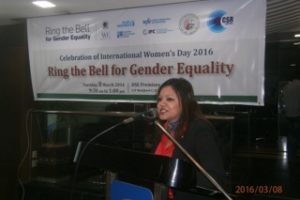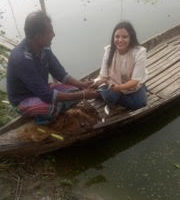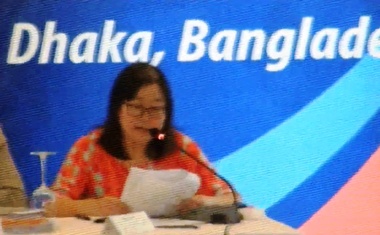A comment from Pope Francis in an upcoming book — in which he called ethnic Uighurs in western China a “persecuted” people for the first time — has set the Chinese government on the defence.
The reference to abuses against Uighurs, which Beijing has long denied despite mounting evidence of a brutal crackdown, could tarnish the recent warming of relations between the Vatican and China.
Writing in his new book “Let Us Dream: The Path to a Better Future,” Francis listed “the poor Uighurs” among the people of the world he kept in his mind and prayers.
“I think often of persecuted peoples,” Francis said in one passage. “The Rohingya, the poor Uighurs, the Yazidi — what ISIS did to them was truly cruel — or Christians in Egypt and Pakistan killed by bombs that went off while they prayed in church.”
Zhao Lijian, the spokesperson for the Chinese Foreign Ministry, said during a Tuesday news briefing that the pope’s words had “no factual basis,” according to The Associated Press.
“The Chinese government has always protected the legal rights of ethnic minorities equally,” he said, according to Reuters. “The remarks by Pope Francis are groundless.”
The Vatican has worked cautiously and persistently over the years toward establishing an agreement with the Chinese government on church operations in China. An agreement on the appointment of Roman Catholic bishops, first reached in 2018, was renewed last month despite the opposition of the US government.
The deal ended a decadeslong power struggle over the right to appoint bishops in China. Beijing agreed to formally recognise the pope’s authority within the church and gave him the final say on bishops, while the Vatican agreed to recognise the legitimacy of bishops previously appointed by the Chinese government. But other details of the agreement have not been disclosed.
The Vatican said in a statement Tuesday that it had appointed a third bishop in China under the agreement with Chinese authorities, and that “a number of processes for new episcopal ordinations are ongoing.”
Many analysts see the continuation of the agreement as a critical step toward restoring diplomatic relations that broke down decades ago after the Communist Party took power in Beijing. But the comments from the pope’s new book could cause trouble. Human rights groups and governments around the world have denounced the Chinese government’s persecution of the group after evidence emerged of the internment of more than 1 million Uighurs and other Muslim minorities in so-called reeducation camps in far western China, as well as for mass surveillance and travel restrictions.
Cardinal Charles Maung Bo, the archbishop of Yangon, Myanmar, and the president of the Federation of Asian Bishops’ Conferences, has also raised the issue of the treatment of Uighurs, reprimanding the international community for inaction.
“In China, the Uighur Muslims are facing what amounts to some of the contemporary world’s worst mass atrocities,” Bo said in a statement released in July. “And I urge the international community to investigate.”
But before the comments emerged this week, the pontiff had remained silent on the abuses against the Uighurs, a tactic experts saw as an effort to avoid alienating Chinese officials at a time when the two states were negotiating.
Francis has similarly faced controversy before over his comments, or lack thereof, about a persecuted minority group. In a 2017 trip to Myanmar and Bangladesh, the pontiff at first avoided using the word “Rohingya” when referring to the Muslim minority group that has suffered a systematic campaign of murder and rape by Myanmar’s military. The pope’s uncharacteristic silence was harshly criticised, casting a shadow over his visit.
But after meeting with some Rohingya refugees in neighbouring Bangladesh, he asked forgiveness, and he has since defended the group, calling them “brothers and sisters” in this book.
In the 150-page, far-reaching text — a relaying of conversation with his English-language biographer, Austen Ivereigh — Francis reiterated one of the most fervent messages of his seven-year pontificate: The church needs to go to the margins to see life as it really is.
“I’ve always thought that the world looks clearer from the periphery,” he said in the book. “When God wanted to regenerate creation, He chose to go to the margins — to places of sin and misery, of exclusion and suffering, of illness and solitude.”
The pontiff also discussed social behaviours that he deemed shortsighted and dangerous, like demonstrations against measures intended to stem the spread of the coronavirus — like wearing masks — and questioned the protesters’ moral values.
“It is all too easy for some to take an idea — in this case, for example, personal freedom — and turn it into an ideology,” he said, adding that you would “never find such people” engaged in social justice demonstrations.
“They are incapable of moving outside of their own little world of interests,” the pope said.
Francis himself has been criticised for not wearing a mask during his public appearances.






















